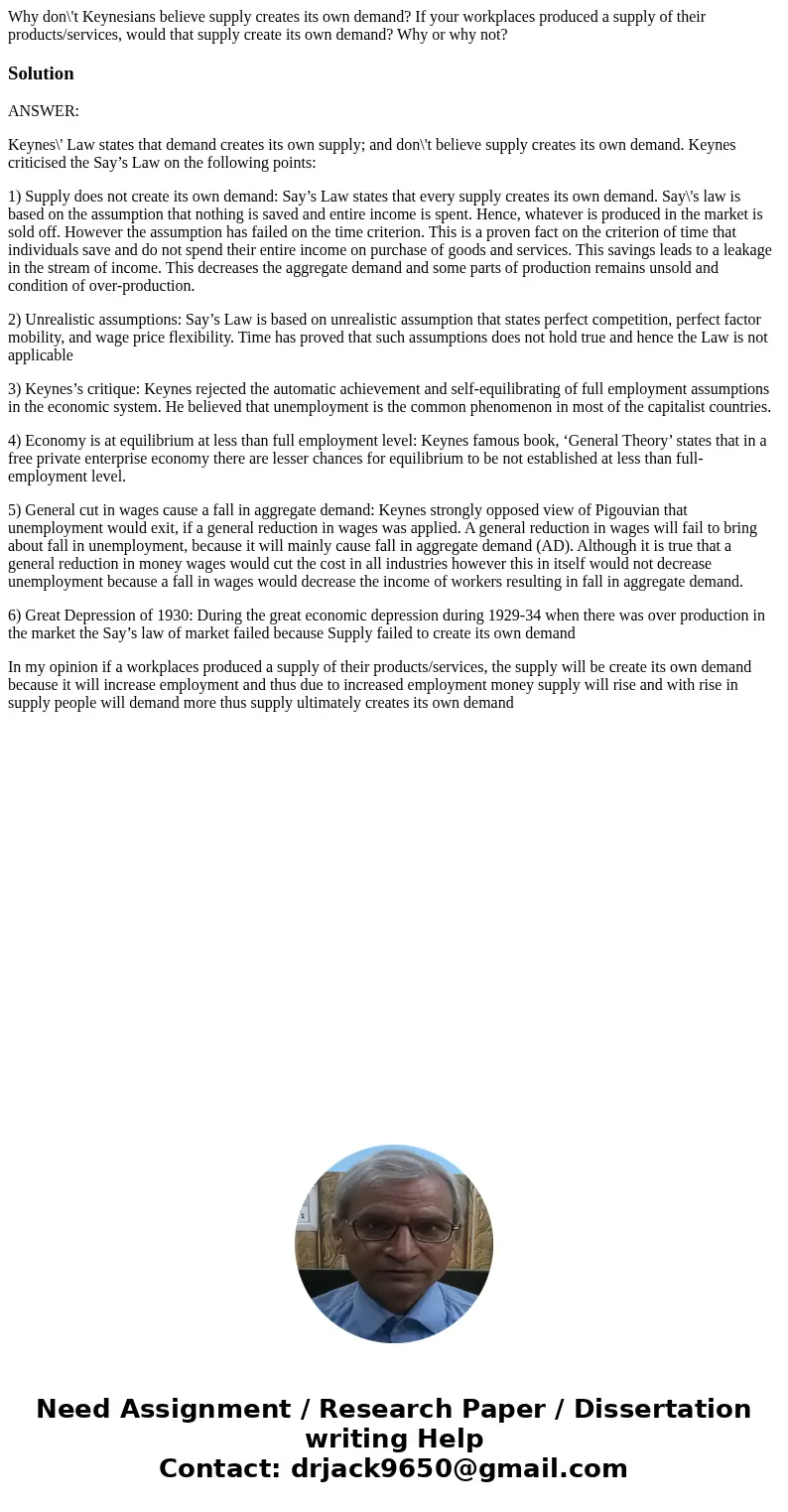Why dont Keynesians believe supply creates its own demand If
Why don\'t Keynesians believe supply creates its own demand? If your workplaces produced a supply of their products/services, would that supply create its own demand? Why or why not?
Solution
ANSWER:
Keynes\' Law states that demand creates its own supply; and don\'t believe supply creates its own demand. Keynes criticised the Say’s Law on the following points:
1) Supply does not create its own demand: Say’s Law states that every supply creates its own demand. Say\'s law is based on the assumption that nothing is saved and entire income is spent. Hence, whatever is produced in the market is sold off. However the assumption has failed on the time criterion. This is a proven fact on the criterion of time that individuals save and do not spend their entire income on purchase of goods and services. This savings leads to a leakage in the stream of income. This decreases the aggregate demand and some parts of production remains unsold and condition of over-production.
2) Unrealistic assumptions: Say’s Law is based on unrealistic assumption that states perfect competition, perfect factor mobility, and wage price flexibility. Time has proved that such assumptions does not hold true and hence the Law is not applicable
3) Keynes’s critique: Keynes rejected the automatic achievement and self-equilibrating of full employment assumptions in the economic system. He believed that unemployment is the common phenomenon in most of the capitalist countries.
4) Economy is at equilibrium at less than full employment level: Keynes famous book, ‘General Theory’ states that in a free private enterprise economy there are lesser chances for equilibrium to be not established at less than full-employment level.
5) General cut in wages cause a fall in aggregate demand: Keynes strongly opposed view of Pigouvian that unemployment would exit, if a general reduction in wages was applied. A general reduction in wages will fail to bring about fall in unemployment, because it will mainly cause fall in aggregate demand (AD). Although it is true that a general reduction in money wages would cut the cost in all industries however this in itself would not decrease unemployment because a fall in wages would decrease the income of workers resulting in fall in aggregate demand.
6) Great Depression of 1930: During the great economic depression during 1929-34 when there was over production in the market the Say’s law of market failed because Supply failed to create its own demand
In my opinion if a workplaces produced a supply of their products/services, the supply will be create its own demand because it will increase employment and thus due to increased employment money supply will rise and with rise in supply people will demand more thus supply ultimately creates its own demand

 Homework Sourse
Homework Sourse